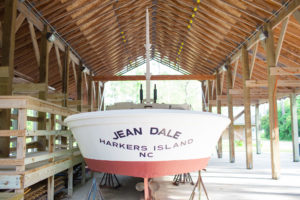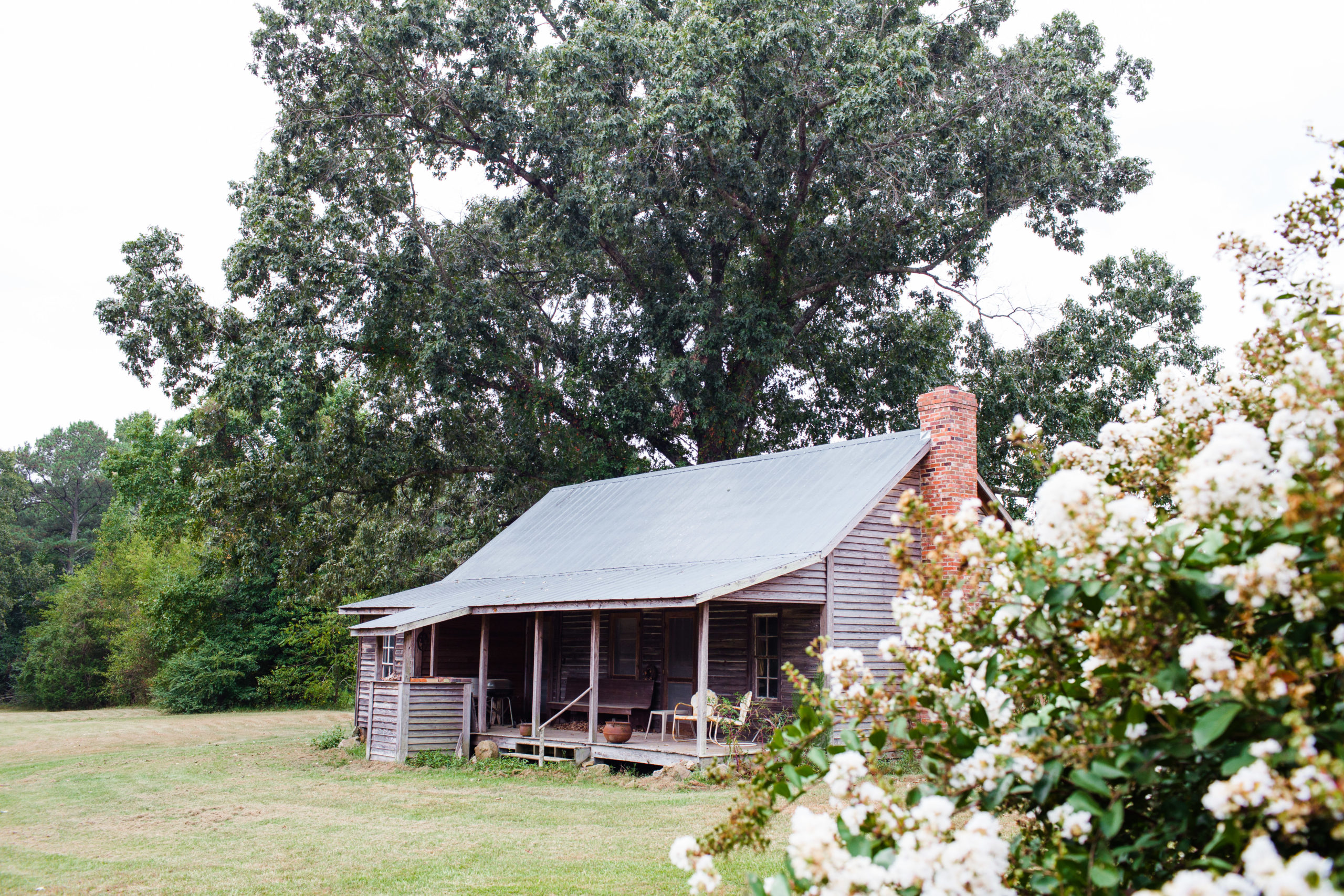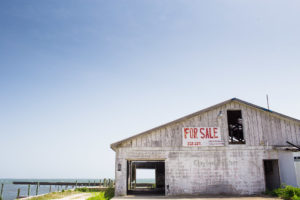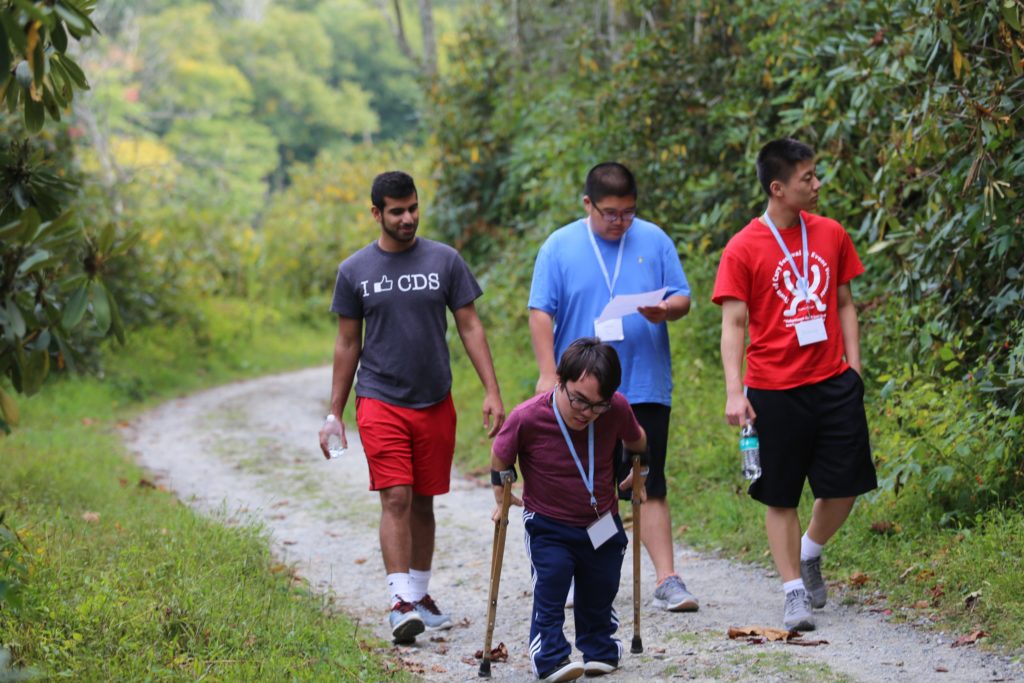
Carolina alumni Sandra Davidson, Baxter Miller and Ryan Stancil have put so many miles on their Yukon SUV’s odometer that they’ve driven it “out of commission” on their travels across the Old North State.
As they chronicle North Carolina stories for their digital publication, Bit & Grain, their car trips are filled with music, thoughtful conversation, two dogs and — more often than not — barbecue.
“Wherever we are, we will find a local barbecue restaurant,” Miller said.
Their ambitious endeavor — to publish one multimedia story a week about North Carolina’s people, places, issues and culture — is already garnering rave reviews. The narrative stories are interspersed with large photos, video and audio interviews in a clean, modern design.
The Columbia Journalism Review wrote: “It has engagement that would make more established local outlets salivate. … at a time when longform journalism is making a comeback thanks to thoughtful design and attention to audience engagement.”

The three co-founders, all natives of small North Carolina towns, bring to Bit & Grain different perspectives. They graduated with undergraduate degrees in 2011 — Davidson (political science and folklore), Stancil (public policy and religious studies), and Miller (journalism and history). Davidson also went on to receive a master’s in folklore in 2015.
“We were all noticing how North Carolina felt fragmented,” Davidson said recently over a cup of coffee at Sugarland on Franklin Street. She had just come from a photo shoot in Durham for a story about the state’s hip-hop culture. “We wanted to invite people into a conversation that wasn’t divisive and wasn’t just reinforcing one side or viewpoint.”
They launched Bit & Grain in the heart of March Madness in 2015 with the inaugural story “The People of Tobacco Road,” which featured audio interviews and personal narratives centered around college basketball fans who follow Carolina, NC State, Wake Forest and Duke.
The inspiration for the publication’s name comes from Davidson’s great-great uncle, the Pulitzer Prize-winning playwright and beloved UNC faculty member Paul Green. As they were flipping through his Wordbook: An Alphabet of Reminiscence, the trio came across the phrase, “every bit and grain,” defined as “an inclusive statement of every item, every consideration or point of view.”
“We thought, ‘ah-ha, that’s what we’re going to be,’” Davidson recalled.

Stancil said the broad and deep liberal arts education he received at UNC influences how he approaches a story.
“Carolina encouraged me to think about issues facing our state in innovative, interdisciplinary, multi-faceted ways,” he said.
Since that first story on basketball mania, the three have published stories on everything from North Carolina’s poet laureate to marriage equality to a four-part coastal anthology.
Paying homage to her American studies and folklore education, Davidson added that they employ “an ethnographic approach” to storytelling.
Bit & Grain has a strong presence on social media, particularly on Facebook, Twitter and Instagram. The International Journalists’ Network praised the publication’s Instagram presence, in a story that also featured the social media engagement of the BBC, The Guardian and The Chicago Tribune.
“We really want to build community, to talk with our readers about things that matter to them as North Carolinians,” Miller said. “We also try to tailor our stories to the medium, from a small story with a recipe to a 4,000-word story on oysters.”
What would they say to critics who might argue that longform journalism is dead?
Stancil acknowledges that journalism is at a crossroads, but he believes their idea of publishing one, in-depth story per week has merit. He said they are focusing not as much on Web traffic as “quality, and how it changes people’s thinking or engages them in a different way.”

Bit & Grain has been invited to become a part of the N.C. Newsroom Cooperative, a journalism incubator that will operate out of The Frontier co-working space in Research Triangle Park. Indy Week wrote about the independent newsroom in December, saying the cooperative “envisions fostering things like hackathons, helping writers monetize their work in new ways and acting as a broker connecting writers with content that needs to be produced.”
“There’s national support, but also a movement within our own state, for a different way of doing journalism,” Davidson said.
For her, the greatest reward in producing features for Bit & Grain is in receiving honest praise from her story sources. After publishing a story on the boat-building tradition of Harkers Island, Davidson said one of the locals wrote:
“A lot of people come down here and write stories about us, and they don’t get it right. But you guys did. You must have a little saltwater in your veins.”
By Kim Weaver Spurr ‘88, College of Arts and Sciences



